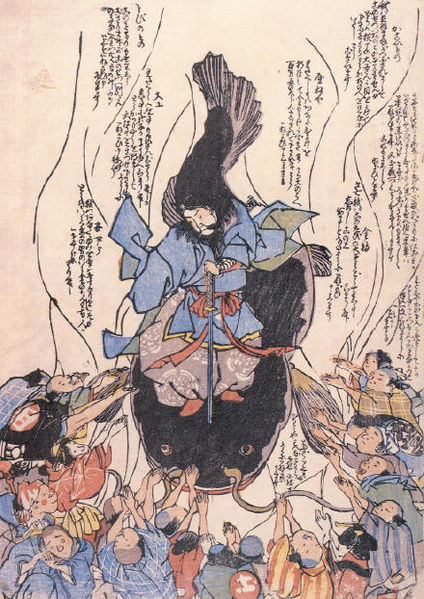 the north wind
the north wind
(This is actually taken from something I wrote in my journal last summer but it feels current again today. I figured I’d polish it up and use it as my post for this week. Dia)
The college I attended taught on the block system. During the first year, we studied one subject at a time, eight hours a day, all week long, after which we tested on Friday and moved on to the next subject the following Monday. It was intense. Especially with a boring teacher. So sometimes, toward the end of any given week when I couldn’t handle being stuck up in my head anymore (focused! thinking! analyzing!), I’d ditch class, borrow somebody’s car, head off to a state park about an hour away, and spend the next few hours hiking a forest trail around the lake.
And there, in that beautiful, silent place, the magic would inevitably happen.
Initially, I’d still feel disconnected, trapped in my thoughts and bouncing around the inside of my skull. The chattering voices in there (teacher! students! educate! argue! question!) were so gripping they actually blinded me. I couldn’t see the trees or hear the forest sounds around me for the first mile or so. But then they’d start to drop off, those voices, one by one. They’d get quieter and quieter until finally (miraculously!) they’d shut up completely. I’d look up and finally see the waving canopy of green, hear the cicadas and wind and bird calls. And that was the point when I’d feel all of a piece again. Whole. Quiet and tired and happy.
That Focused-Controlling-Thinking-Person-Up-In-My-Head would have disappeared and I’d just be myself.
Even back then, before the depression, anxiety, and deterioration that marked so much of my middle years, it felt like something extraordinary was happening. Something I never really understood but sought out anyway, time after time. There’s always been an old, cunning thing in my gut that knows where healing is stashed for me. Out in the woods. Up in the mountains. Under the sky.
Nature’s always been the place where I never felt alone.
But my mind doesn’t give up dominance easily (the downside of having been born with a strong intellect that got a lot of encouragement.) At first it’s fun, thinking about things. It’s like flying. Exhilarating and soaring and free. But eventually, when I get tired or stressed or just spend too much time in front of the computer, they turn on me, these thoughts. They lure me down from the sky with juicy chunks of rabbit meat and when I land, they slip a hood over my head, turning off my eyes and ears, even my sense of smell and touch. The thoughts get so loud (so big!) that they cut me off from the beautiful, rich world around me and, no matter where I am or who I’m with, after that I feel alone. Like I barely have a body anymore and my noisy, escalating brain activity is all there is left.
It would be really horrible except that, when I’m locked up in my head like that, I can’t feel anything.
Yesterday it was like that. I’d been writing all day and the outside world had disappeared again like it does, swept away by an ever-swelling torrent of words and ideas. My mind was tired and over-stimulated. It would not (not!) shut up. And then, as if it wasn’t bad enough, THAT voice showed up.
THAT voice is the worst voice in my head. It’s horrible. Crushing. Relentless. It’s ambitious and proud, glittering, intoxicating, and sophisticated. It puffs itself up like some giant bird trying to make me think it’s important! and official! and true! It tells me that I’m a writer (a writer!) with important things to say that other people need to hear, need to know, need to learn (from me!) and it tells me to compete and study and work my craft and be more professional and what the hell is wrong with me anyway that I can’t finish a project or get something published like everyone else? (Everyone I tell you! Everyone!)
It’s a miserable, fucking voice that sucks the heart and soul right out of me. It makes the real me, the one who lives down, down in there somewhere deep, the one who believes that words are like pixie dust, who loves walking up in the hills and touching wounds gently (gently!) and is sooooo curious that sometimes it’s hard to even go to sleep—it makes her want to curl up in a ball and cover her head with her arms and tell that horrible, horrible voice to just go away and leave me alone. It makes me not even want to write anymore, or care about anything, because if I do then THAT voice will come and take it over. Take all my caring about things and try to turn it into something else—something powerful or profitable or influential. Something other people will want or envy. Something it can leverage or dangle or sell.
THAT voice makes me dry up. Like a leaf that fell off its branch and now just lies there on the ground, shriveling. I really, really hate it.
It showed up yesterday again so I did what I’ve always done. I ran away to the hills. I took Dane, left civilization behind me, parked at the bottom of a hill and started to climb. I slipped out of the cage in my head and skittered away, bent double, dodging under mental shrubbery where that miserable, fucking voice couldn’t find me, until I was finally out of range and free. Then I looked up and suddenly I could see again. The real world was there around me, with all my friends. All the wildish life that the cunning thing in my gut knows and trusts and returns to every time.
There was sagebrush and dust puffs and stink bugs aiming their rear ends at the sky. The ranging hills were there with all their shadows, and the clouds streaked with pink edges from sunset. There were grasshoppers everywhere, and purple thistle just coming into bloom. There was yarrow, St. John’s wort, distant mountains, and the peeping of ground squirrels, and as I climbed higher I gradually remembered that all these things are my friends. They’re not just bushes, bugs, and rodents, great big mineral piles and water vapor reflecting the last rays of sunlight. They’re my true companions on this journey through life, the essential, necessary others in my fellowship, the friends without whom none of this is worthwhile or has any meaning.
Without them, there’s no point in writing anything anymore.
I know, scientifically speaking, that this way of looking at the natural world is naive and superstitious and stupid. THAT voice sniffs and says That’s just anthropomorphism. But I don’t care. I know I’m not supposed to look at these things as truly alive. I understand I’m supposed to see them as inferior and less-than. Brainless. Non-human. Stuff to be used or exploited or destroyed for what we want.
But I don’t believe that. They don’t look that way to me. They never have. From my earliest memories the natural world has always been real. The place where nothing lies to me and I never feel wrong or unwelcome. Where I can finally (finally!) relax because when I’m there, the odd way I love the world and everything in it…the living and dying and dead…is actually okay and perfect.
It’s where just caring about things, just touching wounds gently, just being forever curious, is enough.
 a wood carving we saw at the end of a driveway in the Olympic rainforest
a wood carving we saw at the end of a driveway in the Olympic rainforest
copyright 2011 Dia Osborn










